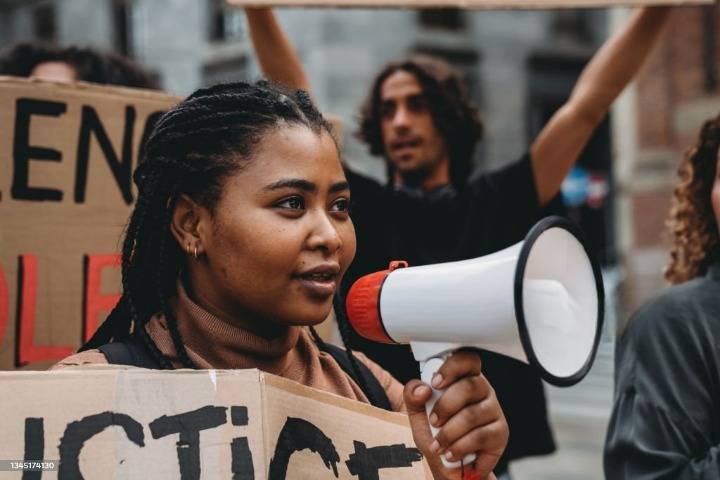BE PART OF THE ANTI RACIST MOVEMENT TODAY!!!
Come to Us as you are. We accept everyone and treat all with Respect, Dignity and Equality.
DIE and Anti Racism
DEI
Diversity, Equity, and Inclusion (DEI) and antiracism are both vital frameworks aimed at fostering fair and inclusive environments, yet they differ in scope, focus, and implementation.Just Roots Consulting
Diversity, Equity, and Inclusion (DEI):
(1) Diversity refers to the presence of differences within a given setting, encompassing various identities such as race, gender, age, sexual orientation, and more.
(2) Equity involves ensuring fair treatment, access, and opportunities for all individuals, striving to identify and eliminate barriers that have prevented the full participation of some groups.
(3) Inclusion is the practice of creating environments in which any individual or group can be and feel welcomed, respected, supported, and valued.
DEI initiatives typically aim to make organizations more diverse and welcoming to people from all backgrounds. However, these efforts often focus on increasing representation without critically examining the underlying systems and cultures that may perpetuate inequities. As noted by Just Roots Consulting, many organizations with DEI programs tend to emphasize diversity without addressing the foundational issues related to systemic inequities. Just Roots Consulting
Anti Racism
Antiracism is an active process of identifying and eliminating racism by changing systems, organizational structures, policies, practices, and attitudes to redistribute power in an equitable manner. It requires individuals and institutions to critically assess and confront the ways in which racial inequities are embedded within societal systems. Being antiracist involves proactive steps to challenge and eliminate racism at individual, institutional, and systemic levels.
Key Differences:
(1) Focus: DEI encompasses a broad range of identities and aims to promote overall inclusivity, while antiracism specifically targets racial inequities and the dismantling of white supremacy.
(2) Approach: DEI initiatives often involve passive measures such as diversity training and policy development. In contrast, antiracism demands active, continuous efforts to challenge and change racist policies and behaviors.
(3) Outcome: DEI efforts may increase representation and awareness but can fall short without addressing systemic issues. Antiracism seeks to transform systems and structures to achieve racial equity.
Addressing racism in Finland is imperative to foster an inclusive and equitable society. Several reports and studies have highlighted the prevalence and impact of racial discrimination in the country:
(1) EU Agency for Fundamental Rights (FRA) Report (2018): This study revealed that 63% of individuals of African descent in Finland experienced racist harassment—the highest percentage among the 12 European countries surveyed. Additionally, 14% reported experiencing racially motivated violence.
(2) Finnish Red Cross Survey (2024): Findings indicated that 59% of respondents witnessed racism online or in media, 38% observed it in public spaces, and 14% noted structural racism in areas like recruitment and housing. Finnish Red Cross
(3) Government Action Plan (2021): In response to these challenges, the Finnish government introduced “An Equal Finland: Government Action Plan for Combating Racism and Promoting Good Relations between Population Groups,” aiming to systematically address and reduce racism nationwide. European Network Against Racism
Anti Racism Education for all.
Anti-racism education for all is a crucial step toward creating a more equitable society. By integrating anti-racism principles into educational systems, we can equip individuals with the awareness and skills needed to recognize and challenge systemic racism. This type of education fosters critical thinking and promotes empathy, allowing students to understand the historical contexts of racial issues and the lived experiences of marginalized communities. When learners engage with diverse perspectives, they are better prepared to confront prejudice and actively contribute to a culture of inclusivity.
Moreover, anti-racism education encourages open dialogue about race and discrimination, helping to break down barriers of misunderstanding and fear. By fostering environments where individuals feel safe to discuss these issues, we can cultivate a sense of community and shared responsibility. This education empowers individuals to become advocates for social justice, promoting actions that lead to positive change in their schools and communities. Ultimately, anti-racism education not only benefits individuals but also strengthens societal cohesion, paving the way for a more just and harmonious future for everyone.
Be in the know
Resources On Anti Racism
Websites and Articles
Podcasts about Racism
Building an Inclusive Environment Through Anti-Racism


Building an inclusive environment through anti-racism involves creating spaces where diversity is celebrated and everyone feels valued and respected. This process requires actively dismantling systemic barriers and challenging discriminatory practices that marginalize individuals based on race. By promoting education and awareness around racial issues, organizations and communities can encourage open dialogues that foster understanding and empathy. Implementing policies that prioritize equity and representation ensures that all voices are heard and that diverse perspectives contribute to decision-making processes. Ultimately, an inclusive environment not only enriches the community but also empowers individuals to thrive, leading to a more cohesive and harmonious society.
Moreover, implementing policies that prioritize equity, and representation is crucial in creating sustainable change. This includes actively recruiting diverse voices in leadership positions, ensuring that decision-making processes reflect the community’s variety. By establishing clear protocols for addressing incidents of racism and discrimination, organizations can demonstrate their commitment to fostering a safe and inclusive environment. When individuals see that their contributions are valued and that their well-being is prioritized, it cultivates a sense of belonging and encourages active participation. Ultimately, building an inclusive environment through anti-racism not only strengthens community ties but also drives collective progress toward social justice and equality.